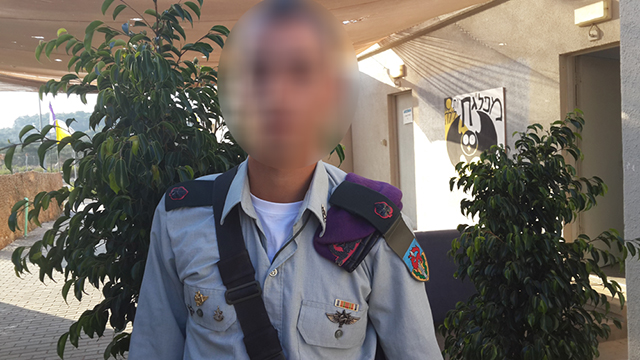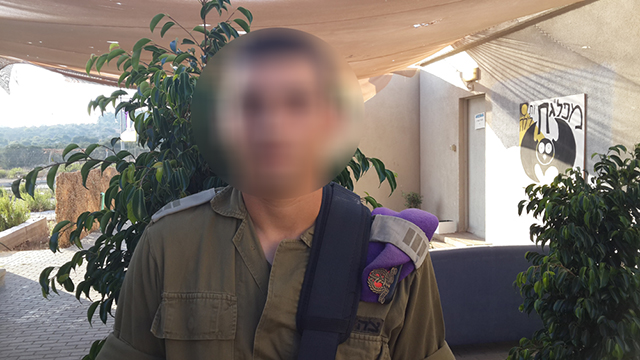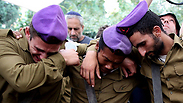
Preventing another 'Gilad Shalit incident'
Commanding officers from the Givati reconnaissance battalion, who were fighting in Rafah the day Sec.-Lt. Hadar Goldin was killed and captured by Hamas terrorists, spoke to Ynet about that fateful day.
August 1, the day Hamas terrorists opened fire on IDF troops in Rafah in the midst of a ceasefire, capturing Second Lieutenant Hadar Goldin who was killed in the incident, has been given the name "Rafah's Black Friday."
The IDF is currently investigating the fighting that resumed that day, a mere 75 minutes after a humanitarian ceasefire went into effect, as well as the troops' forceful response in an attempt to thwart the kidnapping. In the coming weeks, IDF Advocate General Maj.-Gen. Danny Efroni is expected to make a decision whether or not to open a criminal investigation into the incident.
Commanders and fighters from the Givati reconnaissance battalion, who were at the forefront of the fighting that day, spoke to Ynet on how the IDF is working to prevent another "Gilad Shalit incident."
"I told myself - even if I return with a body, the most important thing is to bring the missing soldier back," one of the commanders said.
The fighting in Rafah that day is considered one of the graver incidents of Operation Protective Edge.
"It was seemingly a regular morning and, after the overnight attacks in the area, the ceasefire began at 8am. We held our fire at that moment and started searching for a tunnel. The mission was led by the reconnaissance battalion's commander, Maj. Benaya Sarel," battalion commander Lt.-Col. Eli Gino said.
"We had to explain to the soldiers to only shoot at what threatens them, while at the same time we knew this was an enemy that does not honor ceasefires. The troopsw were searching through a 'dirty' area that included small agricultural structures, greenhouses and orchards between Rafah and Khirbet Khizeh. The rest of the battalion was preparing to defend the area and set up a stronghold," Gino continued.
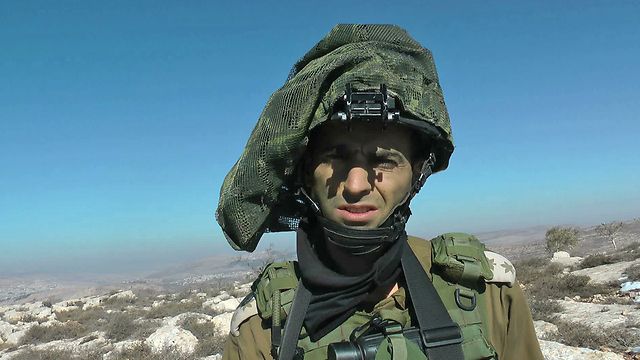
At that time, between 8 and 9am, the battalion's two other companies, Orev and Engineering, deployed in adjacent sectors, a few hundreds of meters away, to secure the commando unit's mission. At 9am, several events started unfolding that were a hint of what was to occur 16 minutes later.
"The commando force identified a suspicious element several hundreds of meters away from it, an unarmed Palestinian, walking between the tin shacks towards the greenhouses," Gino said. "He wasn't supposed to be there, and there's no way he came from afar because the ceasefire just started."
"At the same time," he continued, "not far from there, a motorcyclist appeared, identified the troops, made a u-turn and drove away."
The troops headed in the direction of the unarmed Palestinian in order to question him.
"At 9:16am, I heard the first exchanges of fire from where I was standing a few hundreds of meters away," Gino said.
"I radioed Benaya, but the commander was not answering and his deputy reported that Benaya was in the midst of a firefight.
"As I was moving towards the place, I realized there were wounded soldiers. Shortly after arriving at the scene, we realized there was a concern that a soldier was missing, and then it hit me that time was critical – how do I thwart this kidnapping?"
'We had a soldier underground'
At the same time, the two other company commanders from the battalion arrived at the scene - the Engineering company commander Captain S., and the commander of the Orev company, Maj. D. (who remain anonymous as per the IDF's request, out of concern they would be charged at the ICC).
The two realized their fellow company commander Benaya Sarel was killed, along with his signal operator Liel Gidoni, and that another officer, Second Lieutenant Goldin, was missing. In hindsight, the two realized this was the price of the ceasefire.
"Even before that, Benaya radioed me to find out if that Palestinian suspect (who later turned out to be a lookout for the kidnapping cell - YZ) was not one of my troops," the Orev commander said.
"In hindsight, we feel frustrated at the way we handled the ceasefire. The ceasefire should not have applied where troops were still present, but rather only in areas the IDF has already left. This is why the enemy allowed itself to rear its head. Had there not been a ceasefire, Benaya might have received authorization to fire a tank shell at the area the suspect was seen in. When my company identified the suspicious motorcyclist, we asked for authorization to fire at him, but did not receive it."
The Engineering company commander asserted that "where you can't demonstrate enough firepower, you make the enemy feel safer, and this was evident in this incident."
The Orev commander went on to describe the race on APCs to the scene of the kidnapping upon hearing the first round of fire.
"There was some sort of bug in our comms for two minutes, which seemed like forever to me. Benaya wasn't answering me, and then the battalion team leaders were the first to report a soldier from the force was missing. As soon as we had a report a soldier was missing, the ceasefire policy was canceled," the Orev commander said.
"At first, I thought Benaya had been kidnapped. The realization a soldier had been kidnapped is like being under mortar fire – it's not exactly clear what is going on. I told my soldiers to get into the Achzarit APCs and start moving, so we don't go into shock, because we had someone underground," the Engineering company commander said.
At this point, the troops made several sorties into a tunnel shaft uncovered in a small structure, a sort of agriculture shed. The first to go in was the deputy company commander Eitan with a group of soldiers and officers, and later troops from Sayeret Matkal.
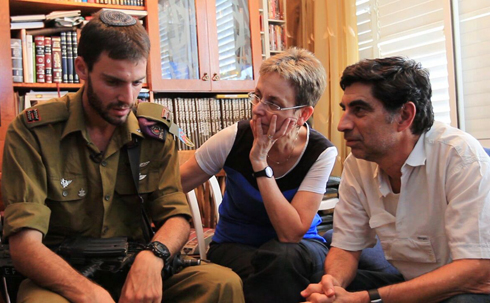
"I sent the other two companies to take over nearby areas in order to isolate the scene," battalion commander Gino said.
"We officially announced the implementation of the Hannibal Directive on the radios about 20 minutes after the incident. We sent fighter jets to bomb places we suspected the shafts were. We knew it meant it'll be less likely we found Hadar alive, but this was the best way to handle this. In a situation like that you need to pick the lesser of evils. The bottom line is, they don't have him and the cell was probably eliminated," he went on to say.
Criticism of the actions of the troops on the ground has started only several hours after the incident, focusing on the fact the troops were operating without sufficient covering fire, which enabled the terrorists to kill the three soldiers and escape with Goldin's body at least three minutes before the rest of the forces arrived.
"In this kind of fighting, you're always prone to tactical errors of this nature," battalion commander Gino explained. "This case may have caught us not as prepared as we wanted to be, because had it not been for the ceasefire, we would've gotten there more aggressively, the enemy would not have reared its head and we could've unleashed heavier fire."
'I'm not afraid of an investigation'
The Orev company commander described the hours that followed the kidnapping as "a crushing and aggressing assault (from the IDF), because you realize the faster you are, the better the chance you'll reach the objective you seek – not taking control of the area, but stopping the kidnapping."We operated in accordance with the orders we received and with level-headedness. There was a moment I ordered (the troops) to halt fire because we identified children in the line of fire."
He went on to say that "when you encounter an incident like this, you'd rather have a dead soldier, than have one in Hamas captivity, like a Shalit number two. You'd rather have a body and not a kidnapped soldier. We drilled into the troops many times about the threat of kidnapping and the objective of disrupting it, should it happen – hitting the enemy even at the cost of hitting your friend.
"I told myself – even if I bring back a body, the most important thing is to bring the missing soldier back. In an incident like that, you do whatever it takes to not get an entire country into a Gilad Shalit whirlwind. Everything I did, even if I destroyed structures or hurt Palestinians, was out of confidence in the righteousness of the way, and as is expected of us, as we've been taught in the army."
The Engineering company commander was just as resolute. "It is precisely in an incident like this that my conscience is clear. You have to admit, they managed to hurt us in this firefight, so in a situation like that almost anything goes, except for harming innocent people. It was just the day before that we received an alert on a terror cell getting around in an ambulance."
Battalion commander Gino gave his officers his full backing. "I'm very pleased with the attack, and proud of the unit regaining their composure. I didn't stop anyone, they all charged ahead, including inside the tunnel, and no one hesitated. I'm at peace with the orders I gave. The fire was proportional, and when a soldier is kidnapped anything is fair, even if it comes at a price.
"A kidnapping is too much of a substantial incident. We didn't go wild in Rafah and we only attacked suspicious targets, we didn't fire on ambulances, and I'm not afraid of being at the center of an investigation. We acted according to the values of the purity of arms. An evidence of that is the fact there are no pictures of an elderly Palestinian who was shot."
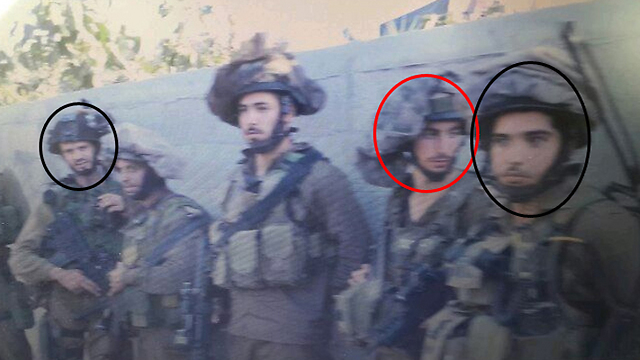
Gino, who already experienced the loss of an officer under his commander, described the hardest thing for him during the operation. It was two and a half days after the kidnapping, when he was the last to leave the Strip at the end of the ground offensive.
"When I crossed the border fence, I felt unease about not coming back with everyone, this awful feeling that we left a body behind. But I told my troops on the radio that I'm proud of them for their fighting, and that I couldn't have asked for better soldiers."
Despite not being fully drilled for the task of destroying the tunnels, the Givati troopers developed in battle some more efficient ways to deal with the challenge posed by the tunnels. They've located and destroyed seven terror tunnels, and killed dozens of terrorists, with the help of the Armored Corps.
"We grieve the 72 soldiers and civilians killed in the operation, but what would've happened had the threat of just one tunnel was realized? It would've been frustrating to know we left the tunnels untreated," the Engineering company commander said.
"These are tunnels Hamas equipped with everything its terrorists could possibly need – body bags, machine guns, anti-tank missiles, bullet-proof vests, uniforms similar to IDF uniforms and even a sticker on each personal weapon with the name of the terrorist. They only need to get into the tunnel, take their rifles and come out to fight."











